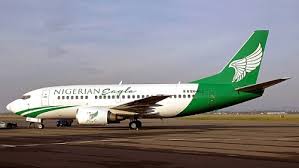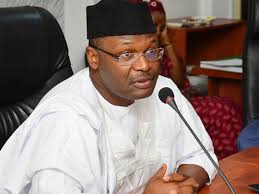Nigeria and the proposed national carrier

Recently, the presidency directed the Ministry of Aviation to step up action on the establishment of a new national carrier. According to the federal government, the reason for bringing back the defunct national carrier, is that a country like Nigeria, touted as the largest economy on the African continent, should have an airline. Definitely, we also believe that a national carrier should be something of pride for Nigeria.
It would be recalled that the country had a national carrier known as Nigeria Airways, which was established in 1958 to replace the West Africa Airways Corporation (WAAC).
Unfortunately, the Nigerian Airways became defunct in 2003 following mounting insolvency, mismanagement, inefficiency, corruption and poor safety record.
At the time of liquidation, the airline was left with a debt of $60,000,000 and a single aircraft flying domestic routes as well as two leased aircrafts operating on the international network. From a fleet of 32 aircraft in 1979, only two were operational by 1999.
Nevertheless, while the airline flopped, some of those who managed it over the years prospered obscenely.
Critics have accused past administrations of liquidating the airline through controversial privatisation exercise that enabled some top government functionaries to acquire the company’s upscale properties in some major cities of the country and Europe.
Much as we see that liquidation exercise as shady and contrived to pander to the greed of those in power at the time, it is well to argue against any haste to bring back the airline. This position is informed by a belief that government lacks the business acumen to run airlines profitably. For example, the ministry officials at the briefing session admitted that private airlines were facing a huge cash crunch despite N300billion Central Bank intervention fund. Question is; if private airlines, that are supposed to be profit oriented, still labour to stay afloat in the Nigerian skies, one then wonders how a carrier which is being established solely for national prestige would turn in profits to maintain its operations without going cap in hand to government for subventions.
Moreover, we need to know when operational, whether the carrier will still face the same regulatory regime as is presently the case or will the airline operate under a different legal framework? In addition, will it be a run on strictly commercial basis with profit motive that will be allowed to fly on its wings or crash if it must? For example, it was public knowledge that almost all top government functionaries such as state governors, ministers, federal and state legislators, top military personnel, directors and board members including members of their families and hangers-on never paid for flying in the Nigeria Airways aircrafts. It was not out of place seeing some of the company’s aircrafts carrying passengers holding complimentary tickets issued to them by officials of the airline.
Such underhand dealings constituted huge financial drains and negatively affected operations of the carrier. Probably, the President had the success of such venerable carriers like Ethiopian, Kenyan and South African airlines in mind while giving the directive. It must be emphasised that those airlines are strictly run along commercial models that emphasises profits and without government interference. Fact is that anyone boarding aircrafts belonging to those airlines must pay the prevailing rate like everyone else no matter how highly placed in government or society.
We are yet to be convinced that a new airline at this time would change the way government owned businesses are run in Nigeria. In the alternative, such a carrier should be run in partnership with competent private investors from any part of the world. This would help instill the discipline that is imperative in such enterprise.







